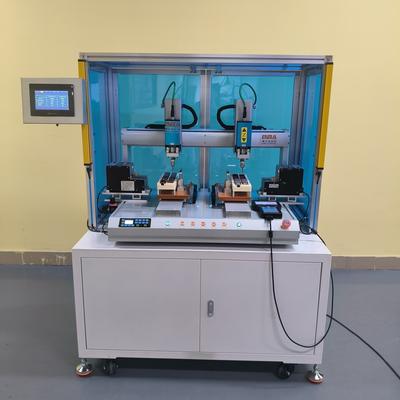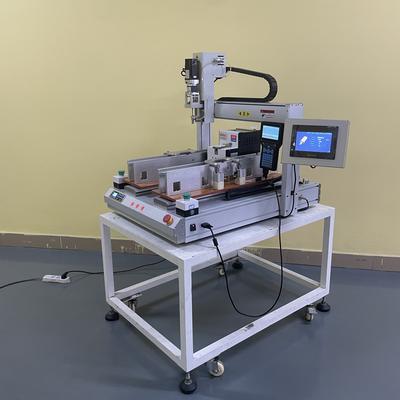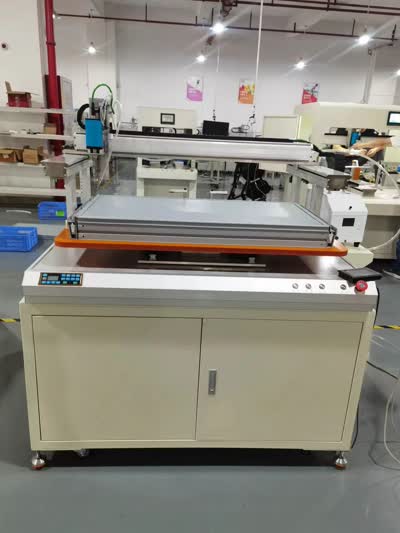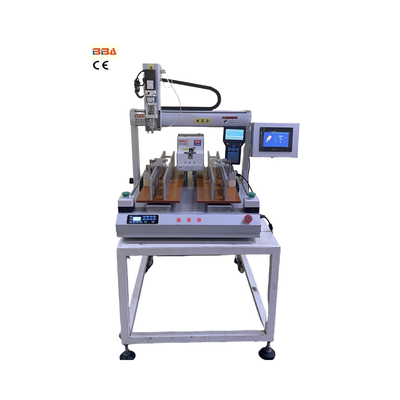Servo Screw Fastening for Small Electronic Components | Precision Assembly
| Product Name | Applicable industries |
| Inline Screw Locking System | Electric Bicycle Assembly |
Servo Screw Fastening for Small Electronic Components
In the rapidly evolving world of electronics manufacturing, precision and reliability are paramount. The assembly of small electronic components, from micro sensors and circuit boards to intricate wearable devices, demands a level of accuracy that traditional fastening methods often struggle to achieve. This is where advanced servo screw fastening technology steps in, revolutionizing production lines with its unparalleled control and consistency.
The Critical Need for Precision
Small electronic components are notoriously delicate. A minuscule screw, often just a few millimeters in length, must be driven with exact torque and depth. Excessive torque can easily strip threads, crack fragile housings, or damage internal circuitry, leading to immediate failure or latent defects that surface later. Insufficient torque, on the other hand, results in loose connections, causing intermittent electrical faults, signal noise, or complete product malfunction. Manual fastening or less sophisticated automated systems introduce significant variability, making consistent quality a constant challenge.
How Servo Technology Transforms the Process
Servo-electric screwdriving systems address these challenges head-on by replacing simple pneumatic or DC motors with intelligent, software-controlled servomotors. This core difference unlocks a new dimension of process control:
- Precise Torque and Angle Control: Servo systems can be programmed to apply torque within a very tight tolerance, ensuring every screw is fastened to the exact specification. Furthermore, they can operate in angle-control mode, turning the screw a specific number of degrees after a certain torque threshold is reached. This is crucial for creating reliable threaded connections in plastic or soft materials.
- Real-Time Monitoring and Data Output: Every fastening cycle is monitored in real-time. The system records key parameters such as final torque, angle achieved, and even the torque curve throughout the process. This data is invaluable for Statistical Process Control (SPC), allowing manufacturers to trace every screw back to its exact parameters and immediately flag any out-of-spec events for inspection.
- Reduced Risk of Damage: The system can be programmed to stop instantly upon encountering an obstruction or if torque rises too quickly, preventing costly damage to components and tooling. This "soft touch" is essential for protecting expensive and fragile electronic parts.
- High Flexibility and Easy Changeover: Different product lines require different fastening parameters. With servo systems, recipes for various screws and components can be stored and recalled instantly, drastically reducing changeover time and eliminating the need for manual mechanical adjustments.
Key Benefits for Electronics Manufacturers
The implementation of servo screw fastening systems delivers tangible benefits across the manufacturing operation:
- Enhanced Product Quality and Reliability: Drastically reduces defects caused by cross-threading, stripped screws, and loose connections, leading to a higher yield and more robust end products.
- Increased Production Throughput: While precise, these systems are also fast. Automated feeders combined with high-speed servos can significantly outpace manual operations while maintaining consistent quality.
- Lower Total Cost of Ownership: Reduced scrap and rework directly save money. The precision of the process also minimizes wear and tear on drivers and bits, lowering maintenance costs and downtime.
- Full Traceability: In industries with strict compliance requirements, the detailed data log from each fastening operation provides complete traceability for audits and quality records.
Conclusion
As electronic components continue to shrink and their internal structures become more complex, the margin for error in assembly disappears entirely. Servo screw fastening technology is no longer a luxury but a necessity for manufacturers aiming to achieve zero-defect production in high-value electronics. By providing unmatched precision, comprehensive data, and gentle handling, it ensures that the smallest screw, in the most delicate device, is fastened perfectly every single time. Investing in this advanced automation is a definitive step towards building a more efficient, reliable, and future-proof manufacturing process.



